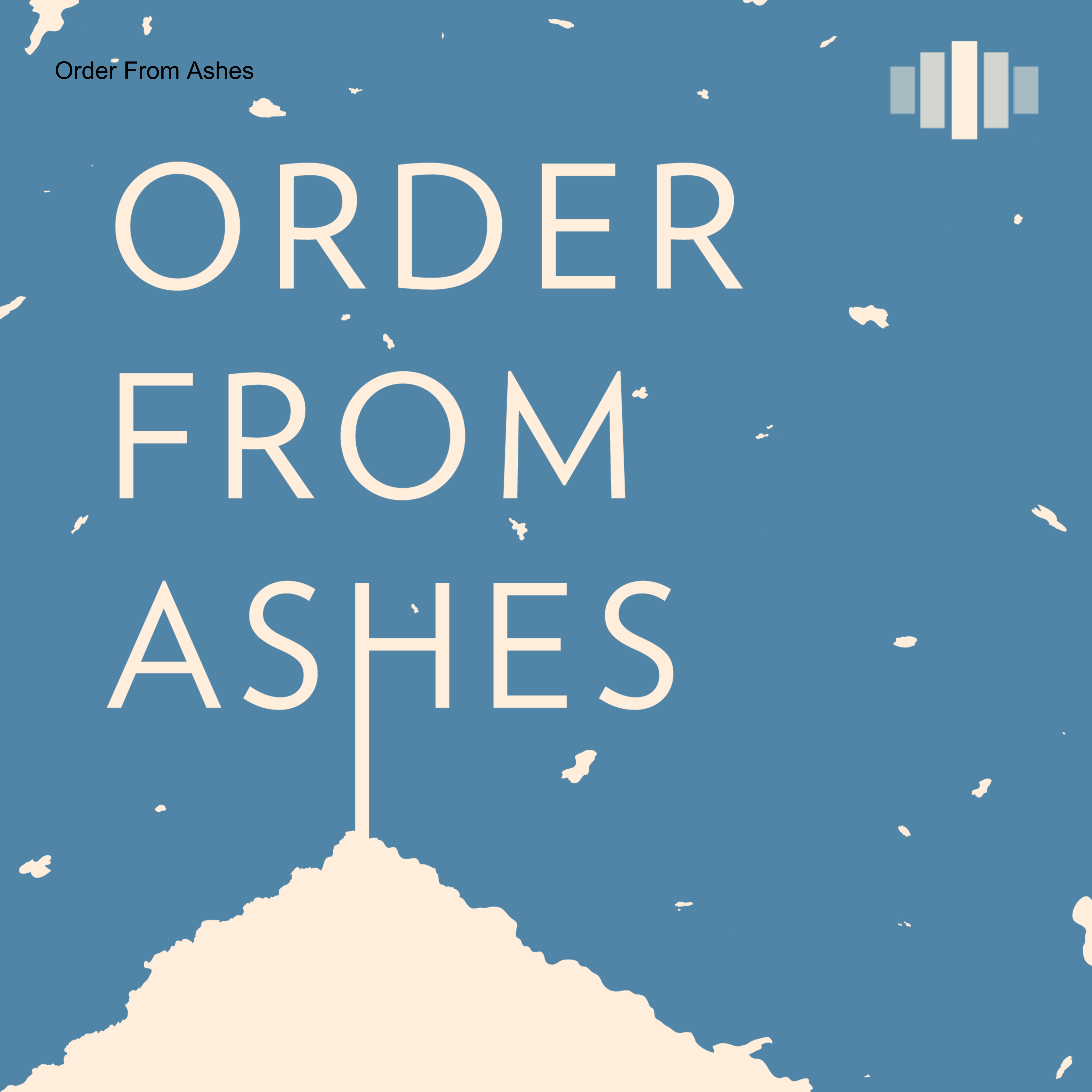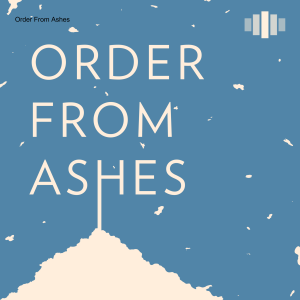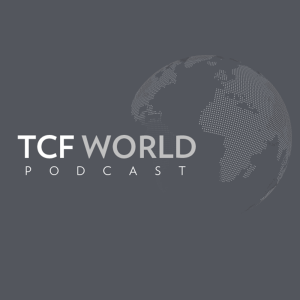
Today’s world is in unprecedented flux. Rights and citizenship are under assault. Authoritarianism is on the rise. No single country can dictate the rules. The Middle East lies at the cutting edge of the crises of our age, with every world power, including the United States, deeply involved. Host Thanassis Cambanis interviews activists, researchers, and decision-makers about the problems of our time, and possible solutions. This podcast is produced by Century International. Our research focuses on the human impact of global policy. We are independent, critical, and progressive. Find our work at https://tcf.org/topics/century-international/.
Episodes

Tuesday Dec 01, 2020
Promoting America’s Devalued Democracy
Tuesday Dec 01, 2020
Tuesday Dec 01, 2020
The United States always had difficulty squaring its record on the ground in the Middle East with its efforts to promote rights and democracy. It’s even harder after the Trump presidency and a contested election, which featured the sitting president and many Republicans questioning the integrity of the electoral process without any basis in fact.
The Middle East’s long authoritarian relapse increasingly has echoes in the crisis in the United States. On this episode of “Order from Ashes,” we talk with Amy Hawthorne, deputy director for research at the Project on Middle East Democracy. We discuss the obstacles that the Trump presidency created for aspiring reformers in the Middle East, and assess the emboldened crop of autocrats who will challenge the Biden administration.
Participants include:
- Amy Hawthorne, deputy director for research, Project on Middle East Democracy
- Thanassis Cambanis, senior fellow, The Century Foundation

Wednesday Sep 23, 2020
What’s Next for the Muslim Brotherhood?
Wednesday Sep 23, 2020
Wednesday Sep 23, 2020
Egypt’s 2013 military coup and crackdown left the Muslim Brotherhood more adrift than ever before in its ninety-two-year history.
With tens of thousands of members surviving in exile in Turkey, the Muslim Brotherhood is undergoing new strains. Youth in the diaspora have experimented with new, liberal approaches to life, politics, and religion, pitting them against a rigid and aging Brotherhood leadership.
Abdelrahman Ayyash, author of the recent report, “The Turkish Future of Egypt’s Muslim Brotherhood,” discusses how the Brotherhood has changed under unprecendented repression, and whether it can adapt enough to survive.
Participants include:
- Abdelrahman Ayyash, Egyptian researcher
- Michael Wahid Hanna, senior fellow, The Century Foundatio
- Thanassis Cambanis, senior fellow, The Century Foundation

Monday Aug 03, 2020
Can the U.S. Help Syria Without Helping Assad?
Monday Aug 03, 2020
Monday Aug 03, 2020
Washington, D.C. has been the most generous donor in the world to humanitarian aid efforts for Syrian civilians. But United States policy has also been bent on overthrowing Syrian President Bashar al-Assad.
On this episode of “Order from Ashes,” we talk with Syria-watchers Daphne McCurdy and Sam Heller about ways the United States can provide meaningful assistance to Syrian people, without endorsing the Assad regime. With Assad securely in power and the war in Syria largely over, how can the United States balance the conflicting imperatives to stabilize Syria, help civilians, and hold war criminals accountable?
Participants include:
- Daphne McCurdy, associate, Center for Strategic and International Studies
- Sam Heller, independent researcher, Beirut
- Thanassis Cambanis, senior fellow, The Century Foundation

Tuesday Jun 23, 2020
Saudi Arabia’s Disruptor King
Tuesday Jun 23, 2020
Tuesday Jun 23, 2020
Mohammed Bin Salman quickly shook up the old sleepy way of doing business in Saudi Arabia when he effectively took power in 2015. He took on the Saudi establishment, sidelining the clergy and other royals. He also quickly spent the international goodwill invested in him with a series of destabilizing moves, including a destructive war in Yemen and the murder of the journalist Jamal Khashoggi.
Now solidly ensconced in power as a crown prince in his early thirties, Mohammed Bin Salman could rule for decades to come, steering the policy of one of the world’s wealthiest countries and the planet’s single most powerful oil producer.
On this episode of Order from Ashes, we hear about the emerging long-term trend lines of Mohamed Bin Salman’s rule from Ben Hubbard, New York Times reporter and author of the recent book MBS: The Rise to Power of Mohammed Bin Salman.
Participants include:
- Ben Hubbard, Beirut bureau chief, the New York Times
- Thanassis Cambanis, senior fellow, The Century Foundation

Tuesday Jun 09, 2020
COVID-19 Gathers Force in Middle East
Tuesday Jun 09, 2020
Tuesday Jun 09, 2020
At the onset of the COVID-19 pandemic, displaced populations and conflict zones were considered especially vulnerable, driving early fears that the Middle East would be especially hard hit. The first wave of the pandemic shook Iraq and Iran, but the worst fears did not materialize, at least not initially.
Now, however, cases are increasing across the region. The pandemic is straining areas already buckling under sanctions, armed conflict, regional rivalries, corruption, and economic depression. On this episode of Order from Ashes, international affairs researchers at The Century Foundation discuss how the pandemic is accelerating regional crises and why it has not yet led to any systemic change. (There’s more TCF analysis of the pandemic in the Middle East in the new roundtable, “Middle East Strained by COVID-19, But Not Transformed.”)
Participants include:
- Dina Esfandiary, fellow, The Century Foundation
- Michael Wahid Hanna, senior fellow, The Century Foundation
- Aron Lund, fellow, The Century Foundation
- Thanassis Cambanis, senior fellow, The Century Foundation

Tuesday Apr 28, 2020
Lebanon, Neoliberalism's Proving Ground
Tuesday Apr 28, 2020
Tuesday Apr 28, 2020
Lebanon has served for decades as one of the world’s leading experiments in extreme libertarianism, illustrating what happens to a society with little to no government regulation or social protection.
The COVID-19 pandemic has highlighted the weaknesses of a health system suffering from corruption and gaping inequalities between public and private hospitals. What role have neoliberal international aid demands for austerity and privatization—known as the Washington Consensus—played in setting up Lebanon’s health system for failure? And what does Lebanon’s case show about the need to reinvest in strong public goods?
On this episode of Order from Ashes, Sima Ghaddar joins Kareem Chehayeb, who in a recent commentary for The Century Foundation argued that austerity and privatization have left residents of Lebanon extremely vulnerable during the COVID-19 pandemic.
Participants include:
- Kareem Chehayeb, journalist, Beirut
- Sima Ghaddar, doctoral candidate, University of California, Los Angeles
- Thanassis Cambanis, senior fellow, The Century Foundation

Monday Apr 06, 2020
Lessons from the European Union in Crisis
Monday Apr 06, 2020
Monday Apr 06, 2020
The European Union is the world’s most successful experiment in shared sovereignty, and its biggest, wealthiest social welfare state. It also has struggled with nationalism and fragmentation in the face of crises, from the 2008 global financial meltdown, to the 2015 migration wave and subsequent rise of the far right, to the ongoing stresses caused by the COVID-19 pandemic.
In what ways has the European model worked, and in what ways has it failed? Only a revived international order can address global problems like health, finance, and climate change. Veteran observers of the European Union discuss the continent’s response to COVID-19, and suggest lessons for international cooperation going forward.
Participants include:
- David Carretta, journalist, Brussels
- Rolla Scolari, journalist, Milan
- Thanassis Cambanis, senior fellow, The Century Foundation

Monday Mar 23, 2020
A New World Order after the Pandemic?
Monday Mar 23, 2020
Monday Mar 23, 2020
The global crisis unleashed by the COVID-19 pandemic will prompt a period of reflection and, potentially, a once-in-a-generation chance for sweeping policy change and reform. But the United States and the rest of the world have a checkered record during similar hinge points in modern history.
After World War II, policymakers responded to widespread social collapse and upheaval with bold, visionary investments in a new international and domestic order, spending money on long-term institutions and programs that produced deep and lasting stability. But other critical moments ended up as missed opportunities, characterized by chauvinism and isolationism: the end of World War I, the end of the Cold War, and 9/11.
On this episode of Order from Ashes, Ilan Goldenberg and Mieke Eoyang assess this history and argue that we aren’t necessarily condemned to repeat past mistakes. Today, Americans have a rare opportunity to dramatically transform government, society, and the international order for the better—or else risk worsening the defects that have left the world so vulnerable to the pandemic in the first place.
Participants include:
- Mieke Eoyang, vice president, Third Way
- Ilan Goldenberg, senior fellow, Center for a New American Security
- Thanassis Cambanis, senior fellow, The Century Foundation

Wednesday Mar 18, 2020
Virus and Oil Price Shocks Buffet the Gulf
Wednesday Mar 18, 2020
Wednesday Mar 18, 2020
The COVID-19 epidemic hit Iran and its neighboring countries early, and has tested health systems and governments across the region. A second crisis hit the region in early March, when oil prices plummeted after a decision by oil producers to flood the market. Our guest on this episode, Karen Young, a fellow at the American Enterprise Institute, has been following both crises.
These twin shocks have shaken vulnerable people across a region already buffeted by conflicts and political crises. Countries like Iraq and Iran seem ill-positioned to handle a health emergency—and falling oil prices threaten to make the Iraqi state insolvent. The virus and the spiralling effects of an oil price war also highlight the deep connections among countries in the MIddle East, and between the Middle East and the world economy.
Participants include:
- Karen Young, resident fellow, American Enterprise Institute
- Thanassis Cambanis, senior fellow, The Century Foundation

Tuesday Feb 11, 2020
What’s the Price of Giving Up on Human Rights and International Law?
Tuesday Feb 11, 2020
Tuesday Feb 11, 2020
During the Cold War, the United States promoted international law and human rights as a way to constrain its global rivals. Since the 1990s, however, Washington has more and more often dispensed with even the rhetorical cover of international law. The United States and its allies have habitually considered themselves exempt from international legal constraints.
The decades since the 2003 invasion of Iraq have witnessed an acceleration of this trend. What is the cost of a full-fledged abandonment of the norms promoted by international law and human rights? International law and Middle East policy scholar Aslı Ü. Bâli discusses the many disturbing practical outcomes of our current state of eroded international law, including the impact on sanctions regimes, assassinations, and wars.
Participants include:
- Aslı Ü. Bâli, UCLA professor of law
- Michael Wahid Hanna, senior fellow, The Century Foundation
- Thanassis Cambanis, senior fellow, The Century Foundation
